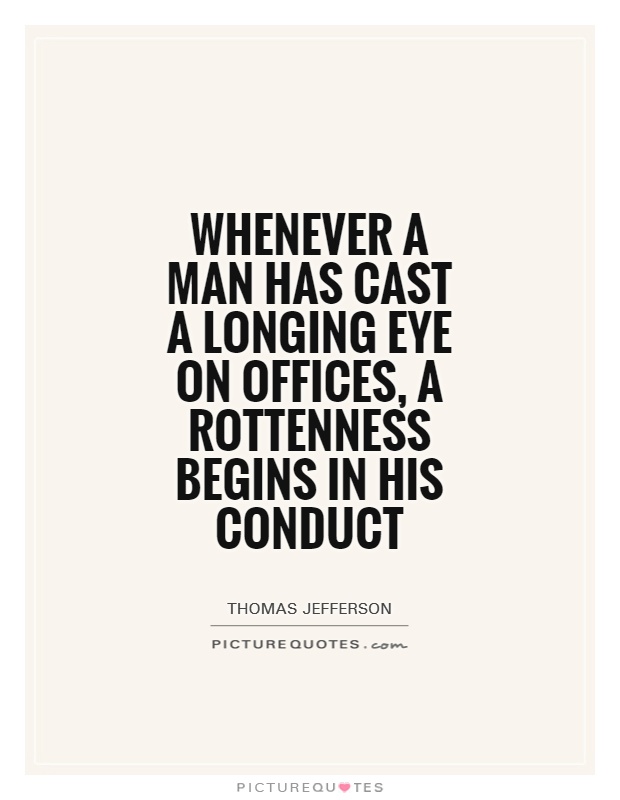Whenever a man has cast a longing eye on offices, a rottenness begins in his conduct

Whenever a man has cast a longing eye on offices, a rottenness begins in his conduct
Thomas Jefferson, the third President of the United States, was a man who understood the dangers of seeking power and office for personal gain. He believed that when individuals become consumed with ambition and desire for political positions, their moral character can become compromised. Jefferson famously said, “Whenever a man has cast a longing eye on offices, a rottenness begins in his conduct.”Jefferson himself was a reluctant politician, who only entered public service out of a sense of duty and service to his country. He believed in the principles of democracy and the importance of public service, but he also recognized the potential for corruption and abuse of power that can come with seeking political office.
Throughout his political career, Jefferson remained committed to his principles and values, even when faced with difficult decisions and challenges. He believed in the importance of honesty, integrity, and transparency in government, and he worked tirelessly to uphold these ideals.
Jefferson’s warning about the dangers of seeking political office for personal gain is as relevant today as it was in his time. In a world where power and influence can often corrupt individuals, it is important to remember the importance of humility, integrity, and a commitment to serving the greater good.
Jefferson’s own life and career serve as a powerful example of how individuals can resist the temptations of power and remain true to their principles. By focusing on the common good and working towards the betterment of society, individuals can avoid the “rottenness” that can come from seeking office for selfish reasons.












 Friendship Quotes
Friendship Quotes Love Quotes
Love Quotes Life Quotes
Life Quotes Funny Quotes
Funny Quotes Motivational Quotes
Motivational Quotes Inspirational Quotes
Inspirational Quotes